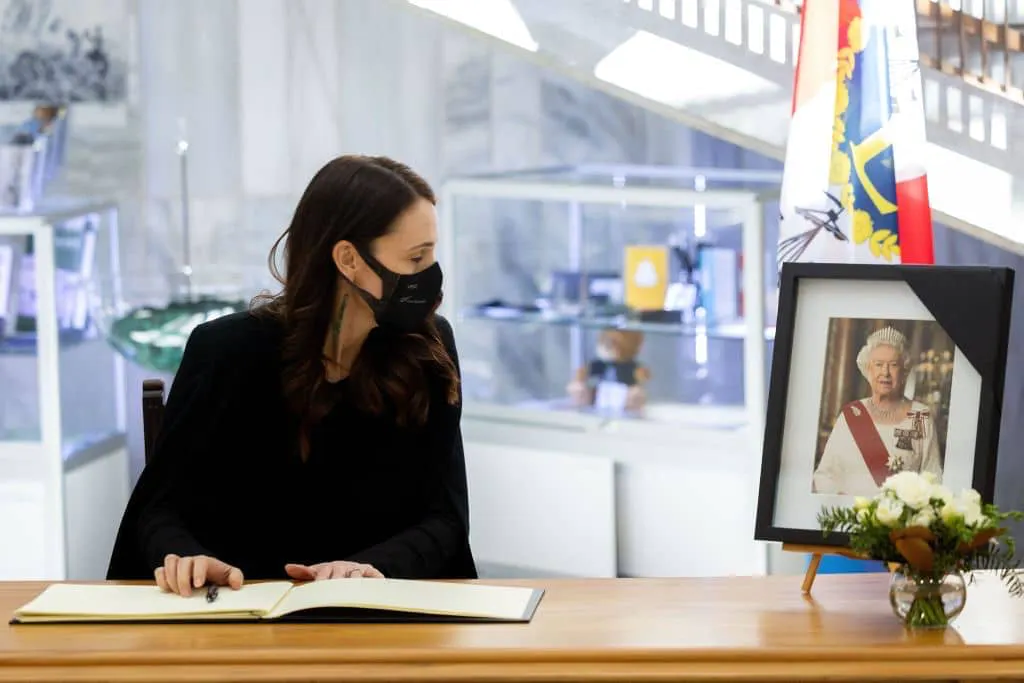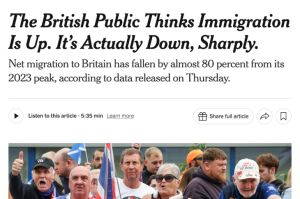New Zealand’s Prime Minister Jacinda Ardern said on Monday that her government will not be pursuing any moves toward changing New Zealand to a republic following the death of Queen Elizabeth II.
Ardern admitted she thought New Zealand would eventually become a republic, and it would probably happen within her lifetime, but that there were more pressing issues for her government to contend with. Under the current system, the British monarch remains New Zealand’s head of state, represented in New Zealand by a governor-general.
The debate as to whether New Zealand should fully step out from the shadows of its colonialist past and become a republic has ebbed and flowed over the last few decades. “There’s been a debate, probably for a number of years,” Ardern said. “It’s just the pace, and how widely that debate is occurring. I’ve made my view plain many times. I do believe that is where New Zealand will head, in time. I believe it is likely to occur in my lifetime. But I don’t see it as a short-term measure or anything that is on the agenda any time soon.”
New Zealand is in a fairly unique position, to do with the structure of its founding Treaty of Waitangi. The treaty, signed in 1840, was an agreement between the British Crown and a large number of Māori chiefs. Today the treaty is widely accepted to be a constitutional document that establishes and guides the relationship between the Crown and Māori.
In an era of rising post-colonial discourse and imperialist revisionism, this abiding, resilient and practical partnership is an integral part of New Zealand’s republican debate. The Crown has been a partner in decades of settlements with various Maori tribes, so there has always been the specter of disruption if the Crown were to be removed from the agreements.
Since 1975, when a Waitangi Tribunal was set up to address Māori grievances, successive governments have worked through claims about Crown breaches of the promises given in the Treaty. In many instances this has involved commercial and financial redress: a cash payment from the Crown and often the transfer of properties, or a right of first refusal for future land purchases.
In 2018, Jacinda Ardern said, “The most important thing for New Zealand is we have a very special arrangement and relationship via our Treaty of Waitangi, and the relationship between Māori and the Crown, so before any conversation like that occurs, that is something that will need to be resolved within New Zealand.”
Some legal academics state that the treaty would be unaffected by New Zealand becoming a republic, as the new head of state would inherit the Crown’s responsibilities.
Others argue the many different facets of the Crown currently at work in the treaty reconciliation processes would be potentially difficult to replicate, and replacing the Crown would have to mean designing a constitutional process that gives that relationship its appropriate central place. New Zealand would need a new language of statehood to differentiate between the state, nation, community and the government of the day.
An interesting quirk of this is that, in polling, Māori voters are more likely to support the country becoming a republic than European, or “Pakeha,” voters. It is hard to know though how such sentiments would change if push came to shove, and a proposed alternative constitutional framework were held up to scrutiny.
On the republican issue, New Zealanders are hard to pin down. We pride ourselves on having a particular identity: deadpan, laidback and laconic, distinct from our more crass and coarse Australian cousins. And yet when it comes to the fundamentals, we are wanly reticent or ambivalent about change, to the extent we couldn’t even be motivated to change our national flag, despite it being almost indistinguishable from the Australian one.
Preference for retaining the monarchy comes down to a number of things. One is the country’s redoubtable, generally older and more conservative demographic who consider the monarchy intrinsic to national identity. Another, quite related, is the strong historic and emotional relationship New Zealand has with Britain. Several of our defining episodes on the world stage have been alongside the UK: Gallipoli, El Alamein, Edmund Hillary’s conquest of Mount Everest coinciding with Elizabeth’s coronation in 1953. This persevered during a resurgence of interest among younger generations in the wars and their commemoration on ANZAC day. On a more plebeian level, lots of folks like reading about the royal dramas in women’s magazines and retaining the monarchy, by some vaguely contrived association, makes the drama more palpable. At a deeper level still, with New Zealand being a relatively small country, many feel a pleasant twinge of relevance whenever a jetlagged royal ambles about touring a jam factory or inspecting a dialysis machine. At the deepest level, New Zealand likes its national identity, but has a latent existential angst about whether it has that identity entirely nailed down. For several generations we have resided in a liminal, transitional space. We are a geopolitical gap year student.
Becoming a republic will, as Jacinda Ardern states, probably happen. More succinctly, in very Kiwi terms, it will indefinitely probably happen.
This article was originally published on The Spectator’s UK website.

























